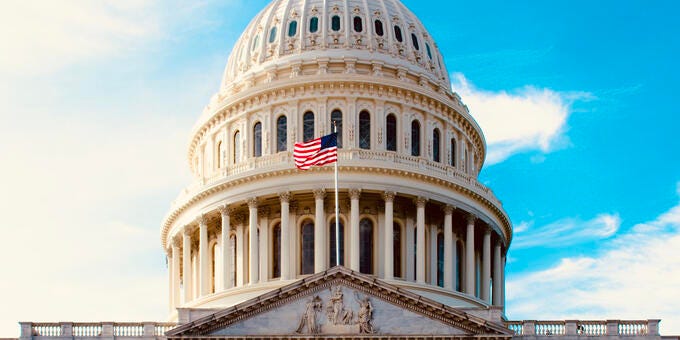
One, Big, Beautiful Bill for Tipped Employees?
- Published
- Jun 3, 2025
- Topics
- Share
Both chambers of Congress are working to advance President Trump’s campaign promise to exempt tips from income taxes via legislation. The House recently passed the One Big Beautiful Act, which contained a provision that would exempt all tips from income taxes for those within certain income limits. The Senate, meanwhile, unanimously passed the No Tax on Tips Act on May 20, 2025, which is similar to the House version but with some key differences. While it remains to be seen which version becomes law, both chambers passing similar provisions is an indication of the strong support for excluding tips from taxable income.
House Version of “No Tax on Tips”
The House provision is contained in the One Big Beautiful Bill Act, which the House passed on May 22, 2025. It amends IRC Sec. 224 to allow for a deduction equal to the amount of “qualified tips” received by the individual. The tips must be reflected on the appropriate tax form, such as Form W2, or self-reported tips on Form 4137. The provision as passed by the House allows for this deduction through 2028.
Employees claiming the deduction must:
- Have earned income that is less than the IRC Sec. 414(q)(1)(B) amount (currently, $160,000) during the taxable year,
- Have a verified Social Security number,
- Be a citizen of the United States or have a permit to work in the country,
- Be engaged in a trade or business that is not considered a specified service trade or business under IRC Sec. 199A, and
- Be engaged in an occupation that “traditionally and customarily” has received tips. (Note: The bill instructs the Secretary of the Treasury to release a list 90 days after passage of those occupations).
If filing a joint return, the employee’s spouse must meet the same requirements above.
The deduction is allowed even for those taxpayers who take the standard deduction. The House bill does not provide a dollar limitation on the amount an employee may deduct.
Tipped employees must receive a W-2 that clearly designates the amount of taxable tipped income they received. Employees will be able to lower their taxable income by the amount of their tipped income. It is important to note that this only applies to federal taxes - many states still require other taxes on tips.
Service charges (auto-gratuities) are not considered tips and therefore not deductible. Service charge income for employees is considered an additional wage.
What Are the Key Differences Between the House and Senate Bills?
The Senate version of the bill generally follows the House version, with some notable differences. First and foremost, the Senate version caps the amount a taxpayer can deduct at $25,000, while the House version has no set limitation. Additionally, where the House version is temporary and expires for tax years after 2028, the Senate version has no termination date, making it a permanent provision.
The Senate version also limits the deduction to those employees whose prior year compensation doesn’t exceed the 414(q)(1)(b) amount. It appears the Senate version limits this restriction on a per-employer basis, meaning an individual who receives total compensation in excess of $160,000 from multiple employers may still be able to deduct up to $25,000.
Both versions reference “cash tips,” but do not provide a definition of “cash” for purposes of the section.
Practical Impacts of the Bill
There is no change in the method of how employers currently handle and record tip income. All tip income should be processed through payroll on the normal cycle and have the appropriate federal, state, and local payroll taxes applied. Tip income should be designated separately from wages on employee’s pay stubs, W-2s, and all other payroll reports. The tip income will still be subject to Social Security and Medicare taxes.
It is estimated that about one-third of tipped workers do not make enough income to owe federal taxes and would not benefit from the deduction. Accordingly, the bill will primarily benefit higher-income employees.
The bill does not affect or change the employer FICA tip credit. This credit allows employers to reduce their federal taxable income by the amount they have paid for taxes on Social Security and Medicare associated with tips.
If you have questions or concerns about how you are currently recording/processing tips, please feel free to reach out.
What's on Your Mind?
Start a conversation with the team

_original%20file.png)











